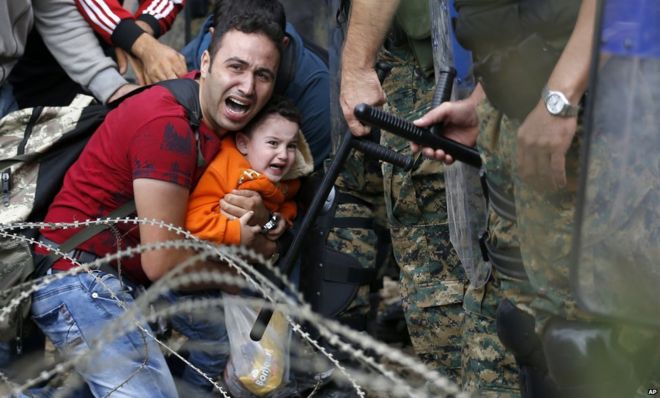Europe is experiencing its biggest influx of migrants in history. This is due to many Syrians, Iraqis and Afghans being pushed out due to civil war and terror and being pulled in by the promise of a better life. More than 80% of those who who reached Europe by boat in 2015, came from these three countries. Huge numbers of people have come from the Middle East and Africa, risking their lives during the dangerous journey. More than a million migrants and refugees crossed into Europe in 2015, compared with just 280,000 the year before. This large scale crisis continues, with more than 135,000 people arriving in the first two months of 2016.

Poverty, human rights abuses and deteriorating security are also prompting people to set out from countries such as Eritrea, Pakistan, Morocco, Iran and Somalia in the hope of a new life in somewhere like Germany, Sweden or the UK.
But as European countries struggle with the mass movement of people, some have tightened border controls. This has left tens of thousands of migrants stranded in Greece, raising fears of a humanitarian crisis. Turkey’s prime minister has spoken out saying they will accept more immigrants if, turkey get’s a fast track into the European Union (EU).
Many attempting to reach Germany and other northern EU countries go via the Western Balkans route, running the risk of brutal people traffickers and robbers.
Faced with a huge influx of people, Hungary was the first to try to block their route with a razor-wire fence. The barrier was widely condemned when it went up along the Serbia border, but other countries such as Slovenia and Bulgaria have erected similar obstacles.
Austria has placed a cap on the number of people allowed into its borders. And several Balkan countries, including Macedonia, have also decided only to allow Syrian and Iraqi migrants across their frontiers.
As a result, thousands of migrants have been stranded in makeshift camps in Greece, which has asked the European Commission for nearly €500m in humanitarian aid.
